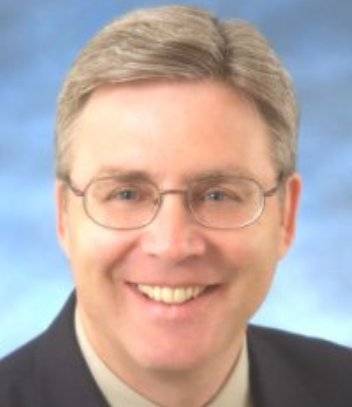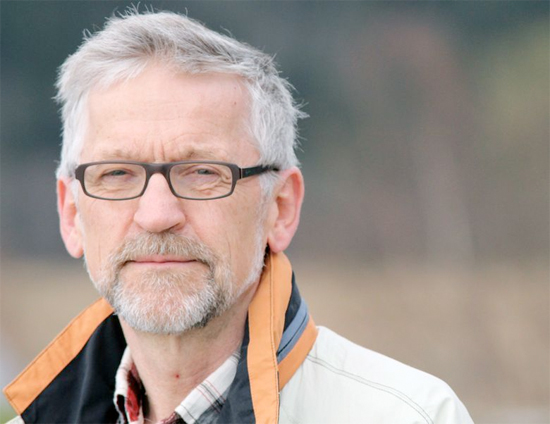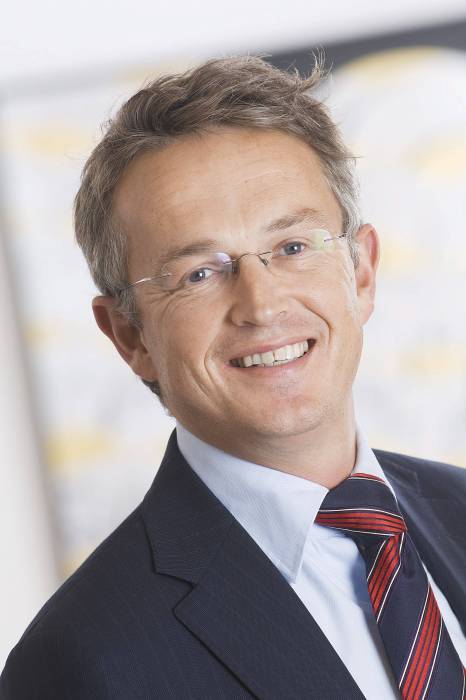|
|

|
| | | |
| |
Paul R. Amyotte
 Paul P. Amyotte (PhD Technical University of Nova Scotia) is a professor in industrial safety and loss management at the Department of Chemical Engineering at the Dalhousie University in Canada. Paul P. Amyotte (PhD Technical University of Nova Scotia) is a professor in industrial safety and loss management at the Department of Chemical Engineering at the Dalhousie University in Canada.
His research addresses issues of industrial safety and loss management through a combination of careful experimentation, phenomenological modeling, and analytical tool development. The long-term goal of his research programs is to provide engineering methodologies for the enhancement of industrial safety. His research topics includes dust explosion prevention and mitigation ; hybrid mixture explosions; process safety management; inherent safety; human factors and quantitative risk assessment.
He has published a range of scientific papers within these topics. Dr. Amyotte is a member of the Canadian Engineering Qualifications Board and is a chair in the Canadian Society for Chemical Engineering.
Last modified: 16 December 2012
| |
| | | |
| | | |
| |
Ann Bostrom
 Ann Bostrom is a Professor of Public Affairs at Evans School of Public Affairs at the University of Washington. Ann Bostrom is a Professor of Public Affairs at Evans School of Public Affairs at the University of Washington.
Bostrom holds a Ph.D. in public policy analysis from Carnegie Mellon University, an MBA from Western Washington University, a BA in English from the University of Washington, and completed postdoctoral studies in Engineering and Public Policy at Carnegie Mellon University and in cognitive aspects of survey methodology at the Bureau of Labor Statistics. She has authored or contributed to numerous publications, including Risk Communication: A Mental Models Approach (Cambridge University Press, 2002), Risk Assessment, Modeling and Decision Support: Strategic Directions (Berlin: Springer, 2008), and National Research Council, Institute of Medicine, U.S. EPA Science Advisory Board, and U.S. EPA Board of Scientific Counselors reports.
Bostrom is currently a member of Integrated Research on Disaster Risk Scientific Committee, the National Oceanic and Atmospheric Administration Science Advisory Board Environmental Information Services Working Group, and the National Academies Standing Committee on Use of Emerging Science for Environmental Health Decisions . She is the current President of the Society for Risk Analysis, and is a member of the Association for Public Policy Analysis and Management, the Society for Judgment and Decision Making, and the American Association for the Advancement of Science. Her research focuses on risk perception, communication, and management; and environmental policy and decision making.
Last modified: 16 December 2012

| |
| | | |
| | | |
| |
Gudela Grote
 Gudela Grote is a full Professor of Work and Organizational Psychology at the Swiss Federal Institute of Technology Zurich (ETH), Department of Management, Technology, and Economics. Gudela Grote is a full Professor of Work and Organizational Psychology at the Swiss Federal Institute of Technology Zurich (ETH), Department of Management, Technology, and Economics.
Prof. Grote has studied psychology at the University of Marburg and at the Technical University in Berlin. She has a Ph.D from the Georgia Institute of Technology, Atlanta.The main objective of her research is to provide psychologically based concepts and methods for integrative job and organizational design, taking into consideration the changing technological. economic and societal demands and opportunities. A special interest are the increasing flexibility and virtuality of work and their consequences for the individual and organizational management of uncertainty.
Application fields for Prof. Grote's research are e.g teamwork and standardization in high-risk systems, management of the psychological contract, career development, effects of new technologies on work processes, and collaborative planning within an between organizations. Prof. Grote is associate editor of the journal Safety Science and member of the editorial board of several other journals. She has published widely on topics in Organizational Behavior, Human Factors, Human Resource Management, and safety management. She has worked with companies such as the Swiss Railways, Swiss Re and various public organizations. Together with Prof. Bruno Staffelbach from the University of Zurich she publishes annually the “Schweizer HR-Barometer”.
Last modified: 16 December 2012

| |
| | | |
| | | |
| |
Nick Pidgeon
 Nick Pidgeon (Ph.D. University of Bristol, Psychology) is professor of environmental psychology at Cardiff University, where he is director of the research group Understanding Risk. His field of research comprises risk, risk perception, and risk communication in the interdisciplinary interface of social psychology, environmental sciences, and science and technology studies. He is coauthor of pioneering books on the communication and understanding of risk, such as, “Man-made disasters (Second edition)” (1997) and “The social amplification of risk” (2003). Nick Pidgeon (Ph.D. University of Bristol, Psychology) is professor of environmental psychology at Cardiff University, where he is director of the research group Understanding Risk. His field of research comprises risk, risk perception, and risk communication in the interdisciplinary interface of social psychology, environmental sciences, and science and technology studies. He is coauthor of pioneering books on the communication and understanding of risk, such as, “Man-made disasters (Second edition)” (1997) and “The social amplification of risk” (2003).
Dr. Pidgeon is a member of the advisory group for the UK Department for Energy and Climate Change, has led numerous policy oriented projects for UK government departments and research councils, and is awarded fellowship of the Society for Risk Analysis International. He is currently engaged in research on public responses to energy technologies such as nuclear power and renewable energy, climate change risks, and climate geoengineering.
The topic of Dr. Pidgeon’s key note talk is “Risk Perceptions and Future Energy System Changes”. This presentation is based on a major 30 month project using novel deliberative and survey methodologies to explore British public views on ‘whole system energy transformation’ that showed that the British public overwhelmingly supports a move away from fossil fuels towards a greater reliance on renewable energy production and a reduction in energy use.
The report can be downloaded here. For more information, contact any one of the report’s authors.
Last modified: 20 November 2012

| |
| | | |
| | | |
| |
Per Morten Schiefloe
 Per Morten Schiefloe (Dr.philos., University of Trondheim, sociology) is professor at the Department of Sociology and Political Science, Norwegian University of Science and Technology. He is also founder of and Research Director at Studio Apertura, NTNU Social Research, a part of the Reliability and Safety Studies network (ROSS), which is organizing the SRA-E conference 2013. His main fields of research are sociology of organizations (organizational culture, change processes, innovation, safety, project management), societal safety, networks and social capital. Per Morten Schiefloe (Dr.philos., University of Trondheim, sociology) is professor at the Department of Sociology and Political Science, Norwegian University of Science and Technology. He is also founder of and Research Director at Studio Apertura, NTNU Social Research, a part of the Reliability and Safety Studies network (ROSS), which is organizing the SRA-E conference 2013. His main fields of research are sociology of organizations (organizational culture, change processes, innovation, safety, project management), societal safety, networks and social capital.
He is member of several committees, including the technical committee of Center for integrated operations in the petroleum industry and the scientific committee of the International CCS Research Centre. He has published a range of research papers and books, for example reports and papers from the evaluation of the gas blowout at the oil installation Snorre A in 2004, and the introductory textbook to sociology used at all Norwegian universities (last edition 2011). One of his current research interests comprises societal safety after the terror attacks in Norway July 22. 2011.
The topic of professor Schiefloe's key note talk will be "The invisible safety - challenges and dilemmas in preparing for the unexpected".
Last modified: 20 November 2012

| |
| | | |
| | | |
| |
Bjørn Otto Sverdrup

Bjørn Otto Sverdrup was the head of secretariat for the Norwegian 22 July Commision. The independent commission’s mandate was to review and learn from the attacks on the Government Complex and Utøya Island on 22 July 2011. The commison's report answers three main questions:
- What happened on 22 July?
- Why did it happen?
- How could our society have let this happen?
An important part of the commission's report is recommendations for societal safety.
Sverdrup has a cand polit in politcal science from the University of Oslo, Norway. He has many years of experience from management, emergency and crisis handling in Hydro and as a part of the top management in Statoil's activities at the Norwegian continental shelf.
He is currently a vice president communications at Statoil's international.
Last modified: 17 January 2013
| |
| | | |
|
|
|
|
|
|